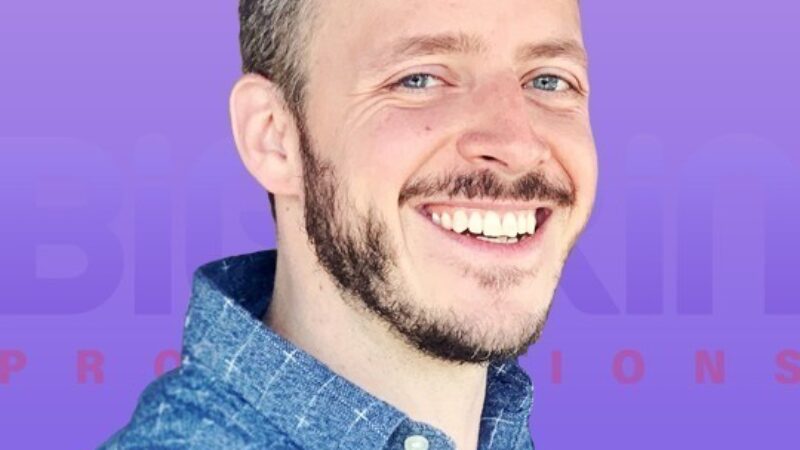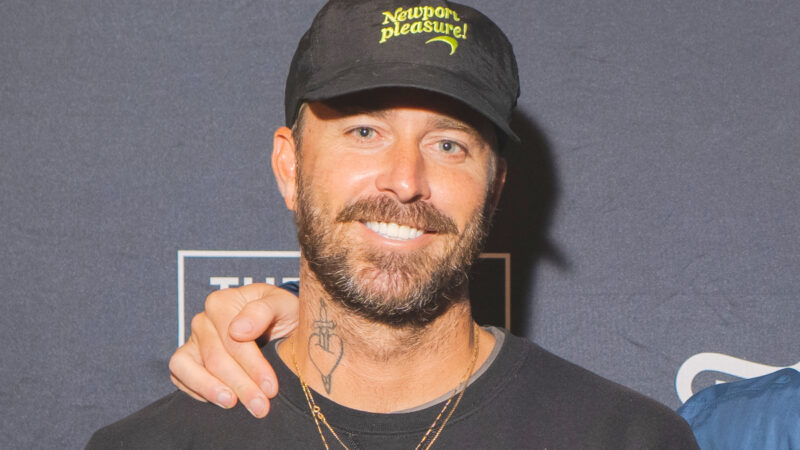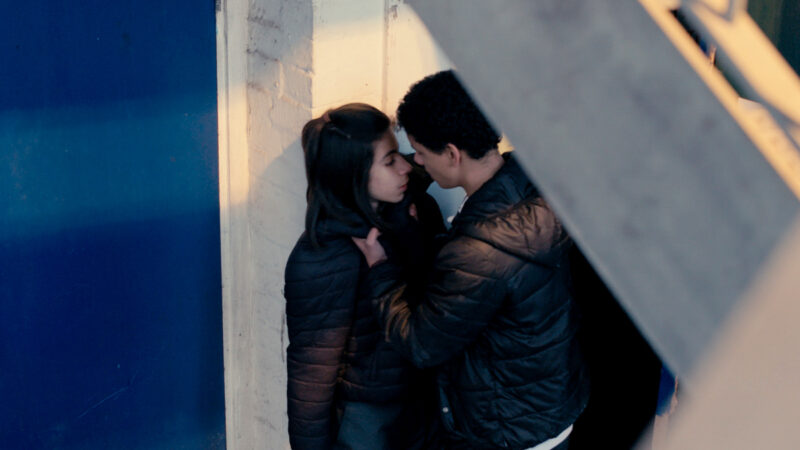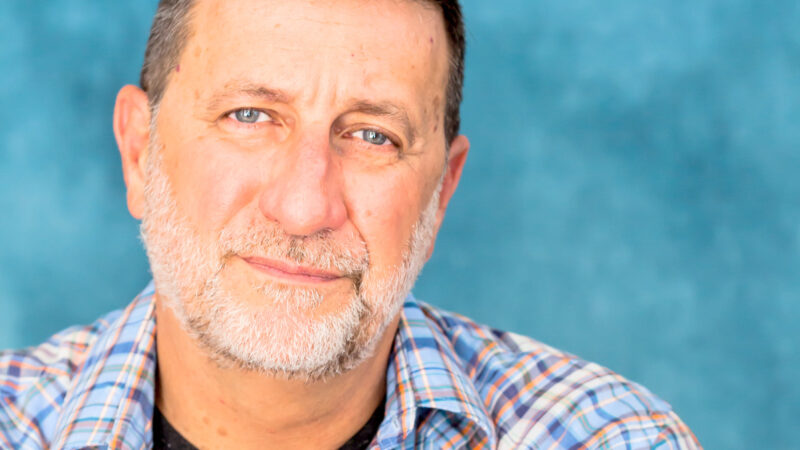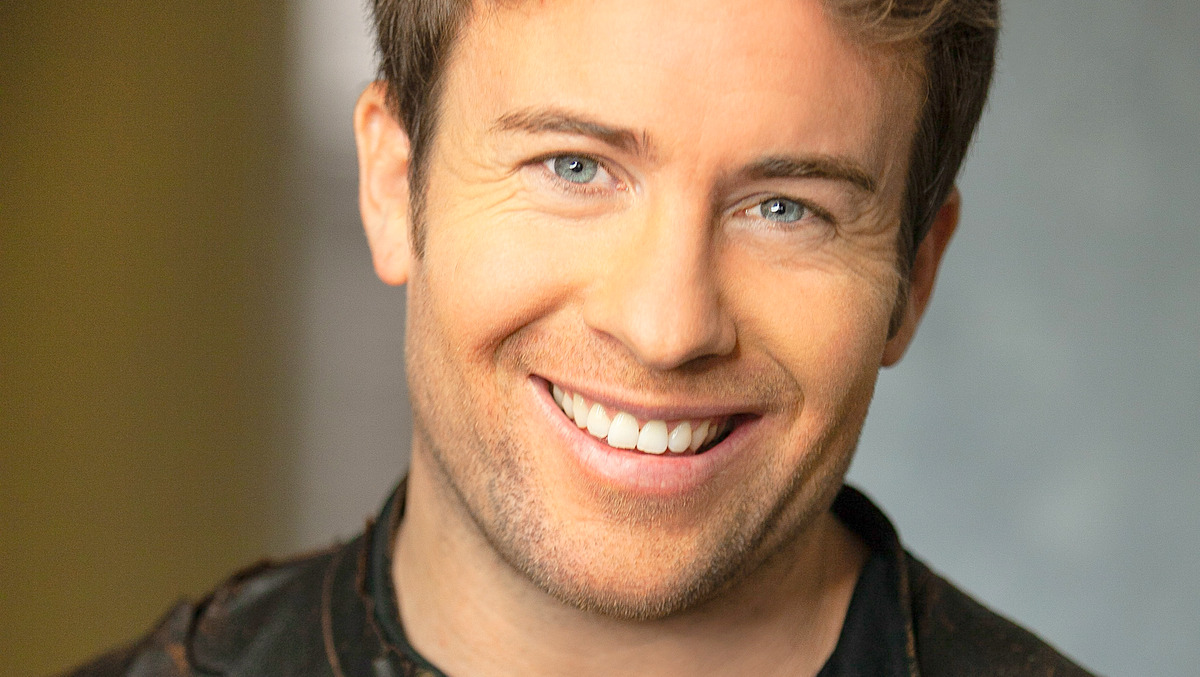
Richard Ryan, a rising Hollywood star, is making waves with his exceptional talent, versatility, and dedication to the craft. With a magnetic on-screen presence, he’s quickly becoming one of Hollywood’s most sought-after performers. Richard is not only a skilled actor with a remarkable range but also a successful producer, director, and writer. He also has edited all 20 films that he has produced.
As a pioneer in independent filmmaking, Richard founded Ox Films right out of high school in 2008. He has since produced 17 short films and three feature films, currently selling worldwide. Richard’s latest political, action, thriller, “Art of Deception,” solidifies his position in the industry.
Richard is known for excelling in various genres, including action, thriller, drama, and comedy. He brings ambition, dedication, and true grit to each role. His commitment extends beyond acting; he’s an athlete advocating for health and wellness. Richard actively participates in non-profit organizations like the Boys and Girls Club, The Moose, and Rotary. Richard has also released music and plans on releasing more music in the near future. He is currently in the development of three films and plans on shooting soon.
Richard’s undeniable talent, work ethic, and commitment to positive impact have set him apart. He has a growing fan base and exciting projects ahead. Richard Ryan is poised to leave a lasting mark on the entertainment industry. Both as an exceptional actor and filmmaker and a positive role model in society.
Art of Deception (2019) Official Trailer | Ox Films
indieactivity: How would you describe your work as a director?
Richard Ryan (RR): My work as a director is very ambitious, inspiring, and strong-willed. I am very organized, and efficient. I put a lot of emphasis on planning and developing. This makes sure the team of the production is all on the same page and well prepared. My work as a director is very enthusiastic and passionate.
How did you get into directing?
Richard Ryan (RR): I started directing when I first started making my own movies when I moved to Los Angeles.
How do you choose a project to direct?
Richard Ryan (RR): The projects I decided to direct are the ideas that I had then eventually. I turned them into scripts. It felt right to take the next steps and coordinate all the logistics for the filming and then shoot it. Some of the logistics include creating the shot lists and storyboards to hiring the cast and crew. It is also about finding the locations, and scheduling and budgeting the shooting days, and post-production.
What uniqueness can female directors bring to film/tv/cinema?
Richard Ryan (RR): Having a female director allows a story to be told from a differently. It is all from a different perspective, and experience. It is instinctually, primitively in every phase of the production. Such as the look, sound, and hiring just to name a few elements. It is important for female directors coming up to have other female directors to look up to as role models.
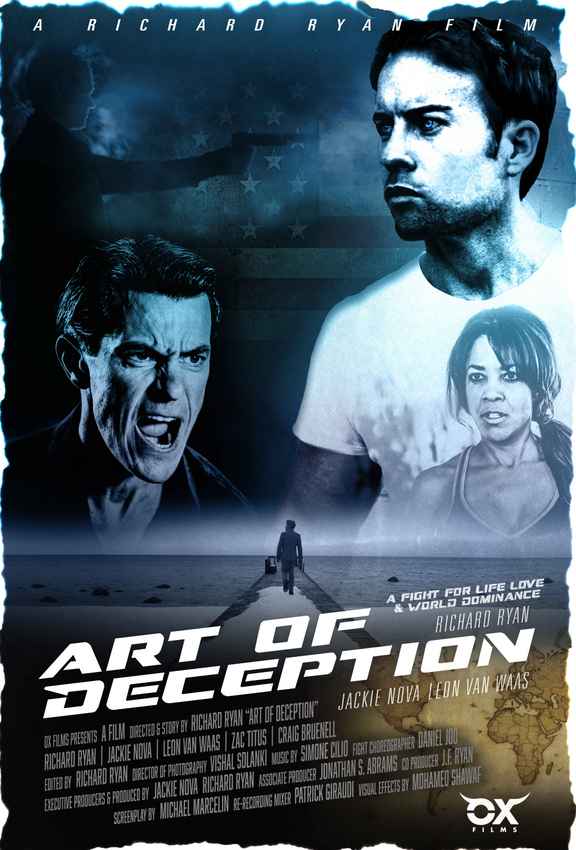
Do you often take courses to increase your craft?
Richard Ryan (RR): I take acting workshops and acting classes sometimes. I watch a lot of Film Courage on YouTube and many other podcasts that are educational about the filmmaking process. I like watching and listening and learning about all the departments of the filmmaking process to always broaden my understanding of every aspect of it.
What books do you read?
Richard Ryan (RR): I don’t read a lot of books but I do watch a lot of Film Courage on YouTube and many other podcasts by a variety of different people.
Why would you choose an actor, writer, or producer? what do you look for?
Richard Ryan (RR): For an actor, a particular look is required based on the character. While hiring someone for a crew position, there is no specific look that is required. Besides that, I will take someone on to the project if they are experienced, professional, and passionate about the project and who have a good attitude, appreciation, and love for life and what they do. The project should speak to the person instinctually in some sort of way as it will be an effortless match that makes sense.
There is a particular chemistry that should be there and nothing should be forced and labor-intensive when it comes to hiring. After a while, you just figure out what works and what doesn’t work and you begin to develop and trust your instinct of who to hire and who not to hire. I’ve known people for a long time who have also developed themselves and also have a network and people they work with. So I make a few phone calls and next thing you know I have a full team for a movie. For example, when I hire a department head such as a Director of Photography, production designer, stunt coordinator, or Key Wardrobe, each one of these people has their own team they work well with so they are now a part of the project just from a few phone calls I made.
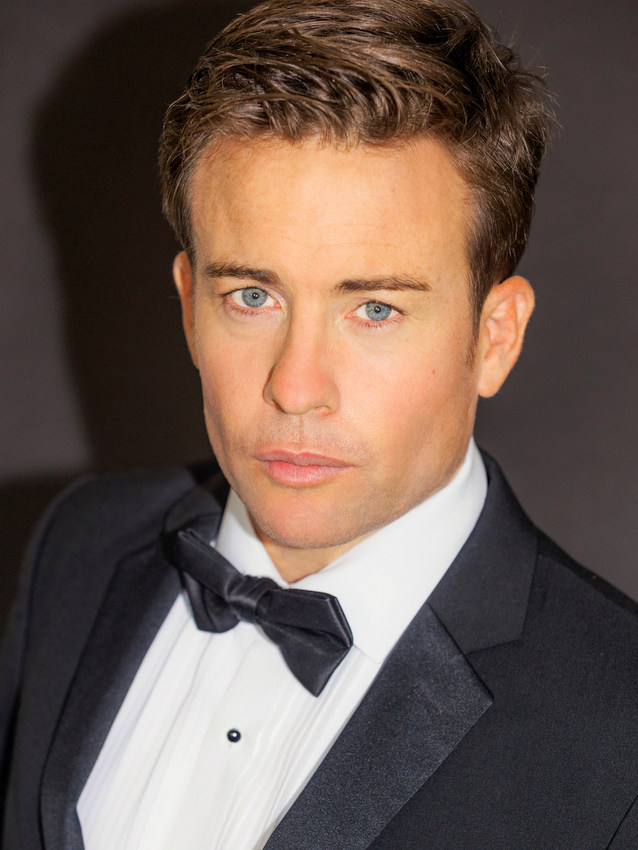
It’s pretty much like that for every department of the film. It took a while to get to that point by working with a lot of people and going through a lot of circumstances. The key is never to get discouraged and always learn and keep moving forward. You will learn and improve each time you do something. Keep doing it with consistency and you will be great.
When you are offered a project, what things do you put in place to deliver a good job?
Richard Ryan (RR): When I am offered a project I take time to really read and understand the story so I can serve the story to the best of my ability.
Briefly explain your latest work?
Richard Ryan (RR): My latest work was actually about a year ago when I made a short film and it was in part of the 48-hour film festival in Los Angeles. It was an absolute rush and I stayed up 48 hours straight to complete the project. Most of the people I worked with on the project I worked with for the first time. The film had a lot of dialogue and several locations and a few people dropped out during the process but we were able to still overcome some challenges and get the job done. You just have to have a vision and go for it and don’t stop until you achieve your goal. The goal was achieved and we completed the movie. The film is called “48 Til Tituba.
Explain key challenges on your last film?
Richard Ryan (RR): The key challenge that I had on my last film was complications with the sound in the post-production that we had to fix. This was very time-consuming and I had to spend a lot more of my own money to help fix the audio issues we had. Going through this allowed me to learn a lot about post-production audio and how to plan accordingly in the development phase to prevent issues in the future. Being very hands-on during the whole process allowed me to learn a lot throughout the process. When I was up against challenges, it really forced me to be truthful with the problem and understand how to fix it by being creative and determined to do what was necessary to finish the job.
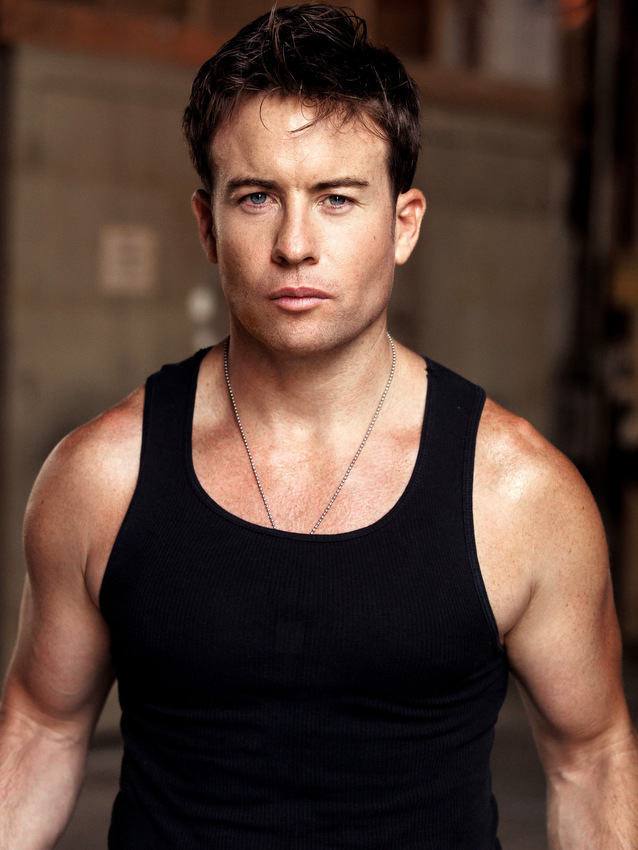
What ‘thing/situation’ helps you during production?
Richard Ryan (RR): What helps me during production is being organized, and prepared and working with professional, talented, and ambitious people who have good attitudes and have an appreciation of the work, and believe in the project.
How do you advise directors to find projects?
Richard Ryan (RR): Go to a lot of film industry events and have your business cards and Instagram ready. Try to talk to every single person in the room and exchange your business card, social media, and/or phone number. Shake the people’s hands, introduce yourself, let them know what you do, and then ask them what they do, and continue having an engaging, sincere, and authentic conversation from a place of respect, truth, gratitude, and a good attitude. Then after the occasion, continue to build these relationships with those that you met with follow-ups and a simple hello, phone conversation, zoom, lunch, etc.
Some of the events that you can go to are DGA, PGA, WGA screenings and parties, film festivals, red carpet events, and Academy parties and get-togethers with other people in the film industry. You never know who can offer you an opportunity to direct because they need a director and you hit it off with the producer. Timing plays a big part in getting a job and being ready. Get to know a lot of people not directly involved in the film industry as well because you must be very well-versed and have knowledge of many different industries and with people.
You never know who knows who. Chances are, every person has someone they know or someone they know who knows someone in the film industry. It’s an industry that is connected to every other industry that exists. Being a good director is being very familiar with life, people, and many different subjects and industries. The filmmaking process encompasses all trades and a collective bunch of personalities. It’s important to be able to handle yourself with stature and certainty when operating in this arena. In time, you will find your way. You should also make your own movie and take it through the whole process from start to finish. That way, you can obtain knowledge and you can earn your stripes. Write a short script, produce, direct, edit, and market the movie.
Always be proactive and don’t sit around expecting a job. That does not work. Create, learn, build, and never stop. This is everything you can do on your own and you should do to be a director. I also advise you to get a literary agent who can get you work as a director. I also advise you to write a lot and get familiar with story structure and learn a lot about that as well. You can look on IMDB Pro and find projects that are in development and email the producer. You can also look on Craigslist or Mandy’s Network.
How can filmmakers finance their projects?
Richard Ryan (RR): Filmmakers can finance their projects by spending their own money by way of credit cards, bank loans, and cash. Filmmakers can find one person or multiple people to donate money or invest in the project. There are also grants available and fundraising platforms such as Seed and Spark, IndieGoGo, and Kickstarter. Different institutions offer programs and grants to help make movies such as The Sundance Institute or Academy of Motion Picture Arts and Sciences. There are also tax incentives that certain states all over the world offer ranging from 20 to 60 percent. Product placement is a good way to get funding for your movie and there are product placement agencies that help get that for you.
What do you want from an actor during a production?
Richard Ryan (RR): I want the actor to be prepared, focused, on time, professional, well-mannered, and respectful during a production. I want the actor to be truthful and feel that he or she is in a safe and trusting environment to be able to fully commit to their truth as the character so they can be the best that they can be.
How do you prefer to work with a producer during a production?
Richard Ryan (RR): I prefer to work with a producer in a way that is organized, professional, respectful, and with healthy and good communication
What do you think a female director can do to get into the film industry?
Richard Ryan (RR): There are many female directors already in the film industry and I think it is great! I would give this advice to anyone which is to write your own story and direct it and show what you can do. Put in the work like everyone else. I believe anything a man can do as a director, a woman can do as well. You just have to believe in yourself. Build your resume, produce your work, market your work nonstop, and network as well. Prove that you can direct and you know what you are doing and accumulate the knowledge and grit to be a good director. Don’t get discouraged and keep going.
More people getting more opportunities to direct equates to more stories from different perspectives and backgrounds being shared. People want to watch what they want to watch and having a variety to satisfy people’s desires is great! It makes the world a better place. Having a female director also allows a story to be told from a different perspective, experience, instinctually, primitively in every phase of the production such as the look, sound, and hiring just to name a few elements. It is important also for female directors who are coming up to have other female directors to look up to as role models.
Who is your favorite director?
Richard Ryan (RR): Quentin Tarantino
Why?
Richard Ryan (RR): I really enjoy Quentin’s stories, the way he writes his stories, and his shooting style. I really like how he is so passionate about his craft as a director and writer as well as his knowledge of the filmmaking process. Also, I like his angles and shots, his lighting, dialogue, production design, and the wardrobe and hairstyles of his characters. I feel that the music plays a very big part in his movies which I love as well because it takes you on more of an adventure and really brings you into the world of which he is creating. It is a very fun experience to watch a Quentin Tarantino movie.
What advice would you give male/female directors around the world?
Richard Ryan (RR): Watch a lot of movies of different genres and eras. Study and really have a good sense and understanding of story structure and character development. Have a good sense and understanding of all the elements of a movie such as the production design, wardrobe, locations, music, editing, lighting, sound, and editing, just to name a few. Understand the importance of how each department compliments the next in terms of the look and sound of each department, and also the people that work in each department.
Communication, having a good attitude, gratitude, and respect for each person on set, setting a tone, and hiring accordingly is extremely important. Each person on set has their own responsibility but it serves one goal which is to get the shots and the audio needed for each day of the production as a team. It is important to know what those responsibilities are and also an understanding of how filming affects the post-production process and then into the marketing and distribution phase. It is important not to rush the process and make sure you plan very well and make sure the script is as good as it can be in the development and pre-production phase.
Make sure everyone involved in the production is on the same page and you articulate your vision specifically so your crew really understands what the objective is. Communicate with the actors and take the time to do that and let them have the freedom and a safe space to really tap into the character and truth so they can serve the story to the fullest. Those are just a few pointers but you just have to do it. You have to go through the process and learn and be bold and creative, keep going, and truly feel the process and go through it. Knowing theory is one thing but having the experience is a whole different level. You will learn a lot when you take action and you will learn what works, what doesn’t work, and what can be improved. You will learn from your team and you will learn a lot about yourself. Be bold, be transparent, just do it and keep going.
Briefly write about your career?
Richard Ryan (RR): I have been performing, creating art, creating games by myself and with others, and playing sports all since I was about 5 years old. In high school, I took my first acting class and then continued in theater and took acting for the camera classes. I moved to LA after high school as it was certain this was what I wanted to do as a career. After 3 months of auditioning and acting training I wanted to make my own films. I wanted to act and book roles so the best way to do that and get the party started was to book myself to play different characters and explore the filmmaking process.
Then, I had an idea, wrote the script, and then went out and found the locations, actors, camera, and computer to edit which are a few of the variables to make the movie. I asked a lot of questions on the way and talked to a lot of people as I had this spark and passion just pouring out of me and I took my first film through the whole process from start to finish. That spark and passion that I had and always have had is what really attracted people to want to be a part of my productions. Then I started my own company as a way to market my film and I was very inspired to keep making movies and acting.
So I kept doing it. The process combined my passion for acting, creating and building teams, and my love for athletics and fitness. I have a lot of ideas so I do what I can and go through the process. Once you do that, things happen and you learn and grow, and build a community of people with whom you get to create, learn from, and share great experiences together. It’s art. I love art. Today, I have made 17 short films and 3 feature films and I am in the development of 3 movies currently.
I also do martial arts and I have produced some music as I have always had a love for rap and hip hop. Besides my own produced projects I have done a lot of other films, commercials, and television and am very appreciative to have been able to work with and meet so many extraordinary, talented, ambitious, great people! Every day I learn more about myself and others and really try to hone my skills and improve. This business really helps me to be the best that I can be every day and really try to develop new skills and work on bettering the skills that I already have. This business teaches you a lot about life and people. We all have greatness within us, we just need to trust it, believe it, and go for it all the way. This is what makes the world go around.
Tell us what you think of the interview with Richard Ryan. What do you think of it? What ideas did you get? Do you have any suggestions? Or did it help you? Let’s have your comments below and/or on Facebook, Instagram, or Twitter.
Socials
Website
Facebook
LinkedIn
Twitter
Instagram
YouTube
FILMMAKER INTERVIEWS

